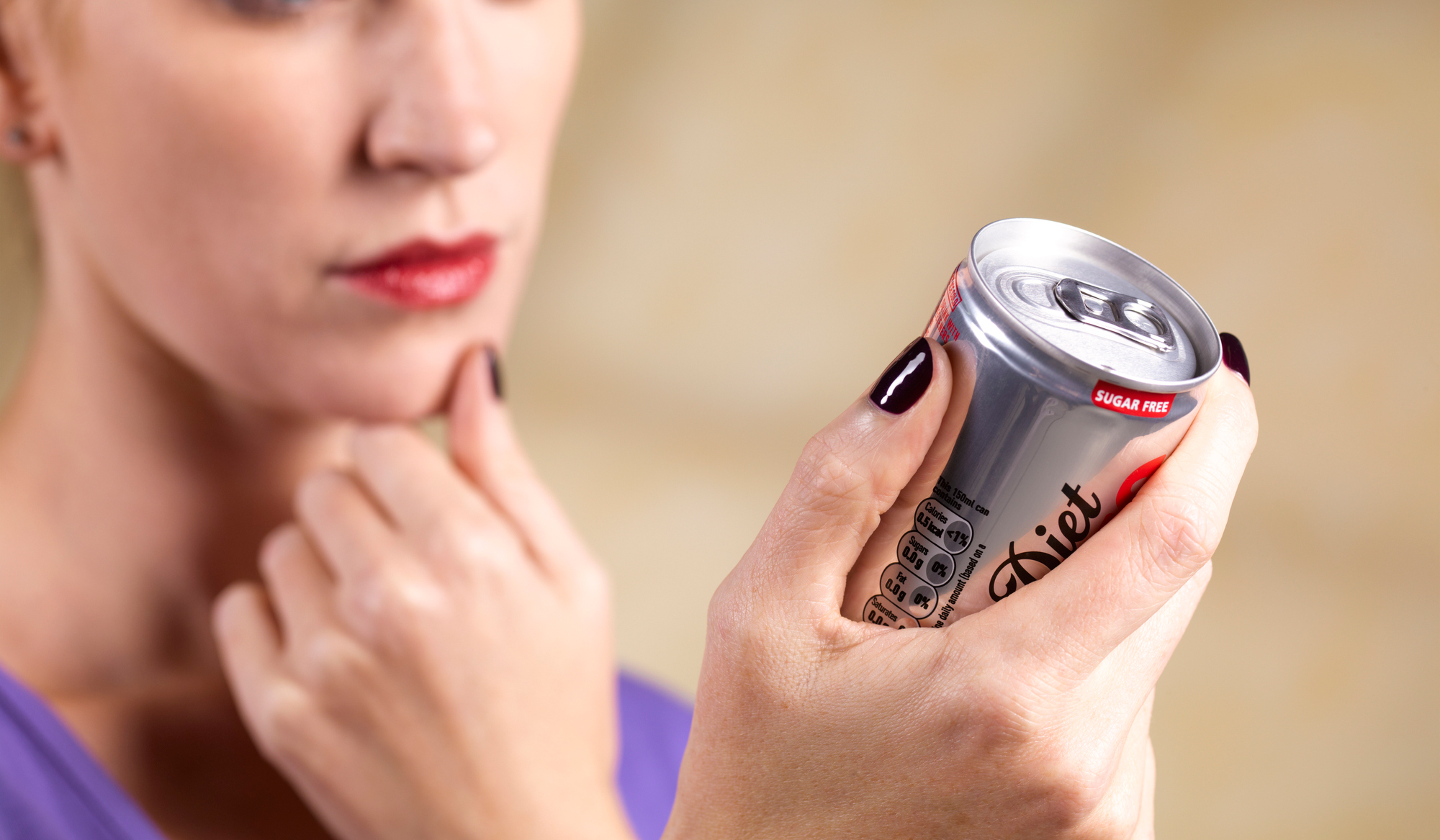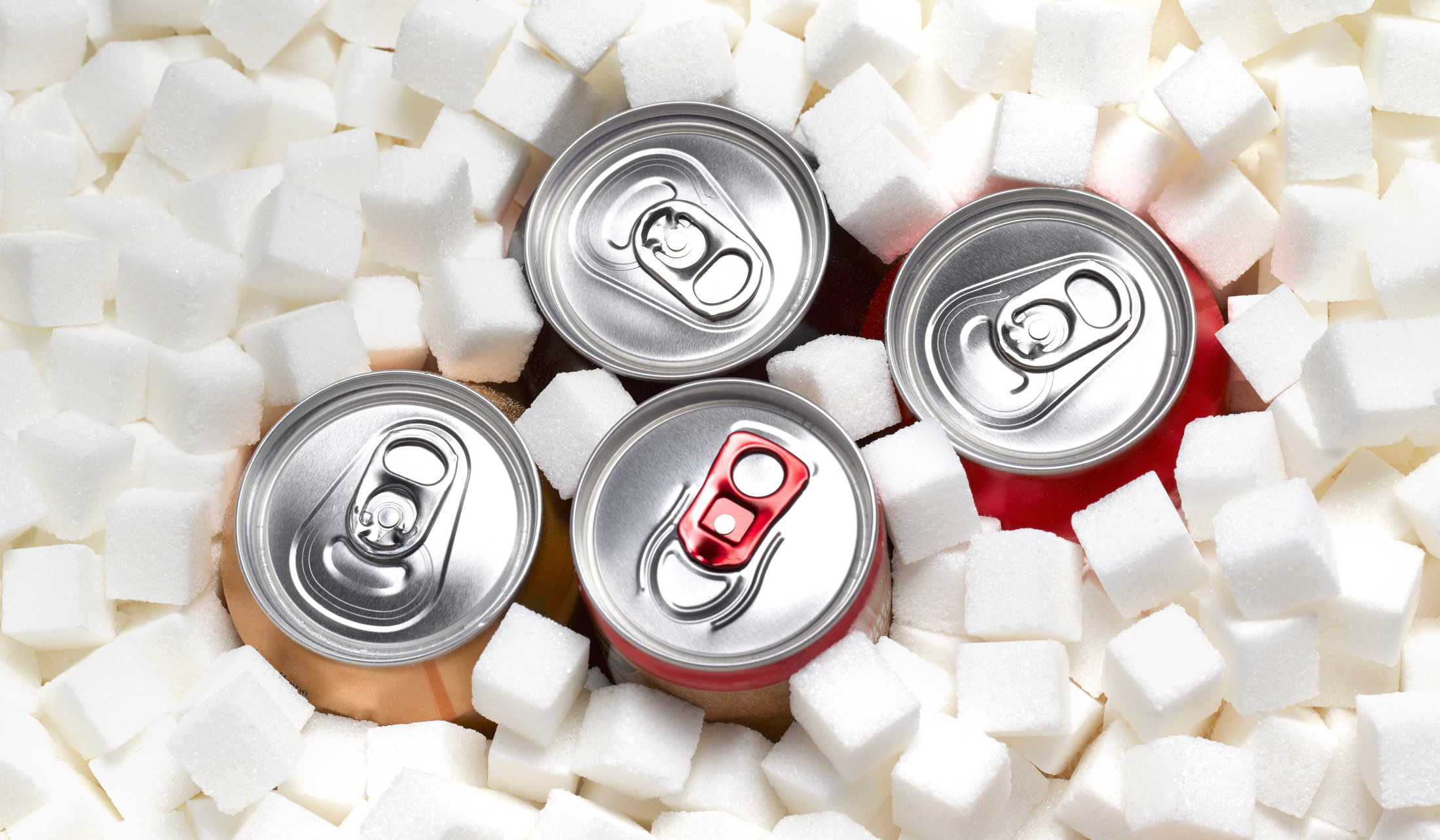Why diet sodas and sugar-free foods are bad for your gut health
Diet and sugar-free alternative foods may be a better option for your waistline, but they're not so good for your gut health


Start your week with achievable workout ideas, health tips and wellbeing advice in your inbox.
You are now subscribed
Your newsletter sign-up was successful
Diet and sugar-free versions of your favourite foods and drinks seem like a great idea if you're looking to eat healthily and lose weight. The average can of soda contains around 40 grams of sugar, so being able to indulge in your favourites without consuming lots of the sweet stuff seems like a win-win. However, the alternative sweeteners like aspartame used instead of sugar could be harmful to your gut health, potentially contributing to issues such as obesity, heart disease and cancer.
One study, published by researchers from the University of Granada, studies lots of long-term studies on the effects of sweeteners on gut microbacteria. The researchers write that "it was found some long-term prospective studies raise the concern that the consumption of artificial sweeteners might actually contribute to the development of metabolic derangements that lead to obesity, type-2 diabetes, and cardiovascular disease".
Another study, published in the journal Molecules found all sweeteners caused damage to a sample of bacteria when applied in lab conditions. It doesn't necessarily mean these sweeteners are attacking the good bacteria in your gut, but the study does suggest these sweeteners have been linked, but not conclusively, to "adverse effects such as cancer, weight gain, metabolic disorders, type-2 diabetes and alteration of gut microbiota activity".

More evidence amounts: in an article for Scientific American, University of California's Peter Turnbaugh states artificial sweeteners might change our gut bacteria in such a way to make gaining weight easier, especially on our hips, thighs and middle.
Cutting out sugar is an important step in losing weight. But be wary about replacing it with artificial sweeteners: although there's no cast-iron, conclusive evidence about what happens to your gut bacteria, there's enough evidence mounting to eat and drink these foods sparingly.
So if you're trying to lose weight, and sugar-free versions of your favourites aren't safe either, what should you do? The answer is to consume less pre-packaged processed foods and opt for more natural "whole" foods like vegetables, fruit, whole grains, dairy products, water (perhaps out of one of our best water bottle for the gym entries) and lean meats.
Of course, a small amount of sugary stuff isn't too bad for you – we won't begrudge you the occasional chocolate bar or glass of wine – but moderation is the key. If you need a few extra micronutrients in your diet, the best vitamins for women over 50 and best fish oil supplements can help support your diet in addition to more variety from whole foods.
Start your week with achievable workout ideas, health tips and wellbeing advice in your inbox.
Matt Evans is an experienced health and fitness journalist and is currently Fitness and Wellbeing Editor at TechRadar, covering all things exercise and nutrition on Fit&Well's tech-focused sister site. Matt originally discovered exercise through martial arts: he holds a black belt in Karate and remains a keen runner, gym-goer, and infrequent yogi. His top fitness tip? Stretch.
